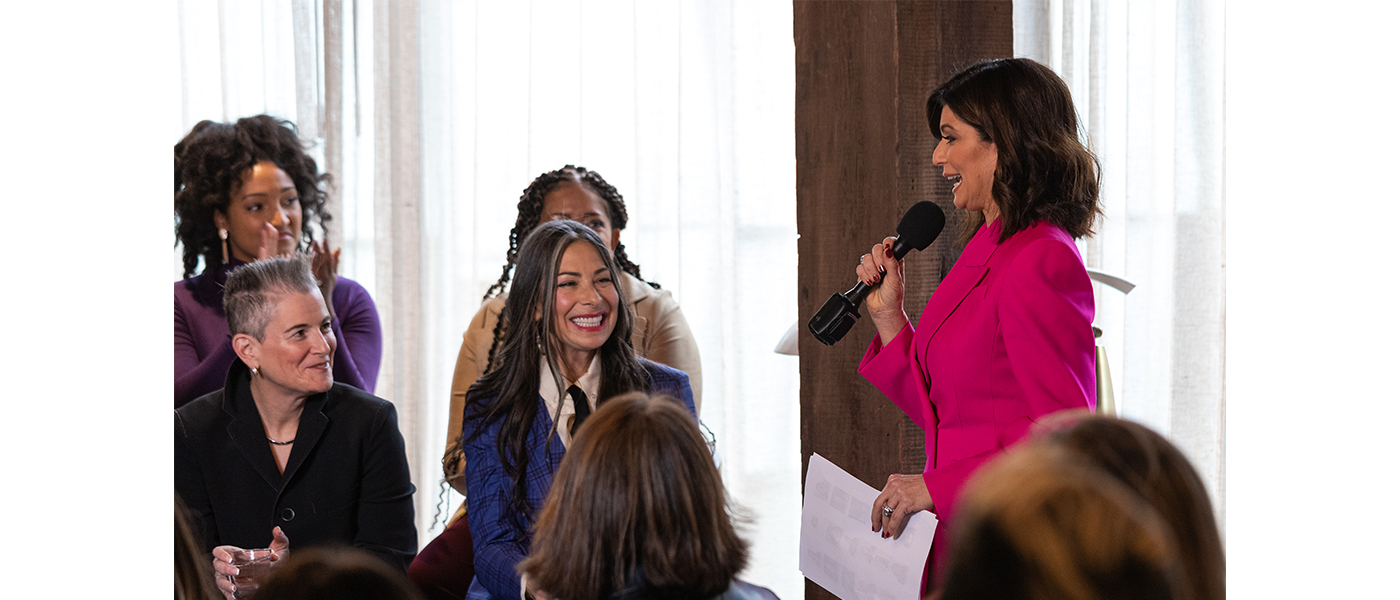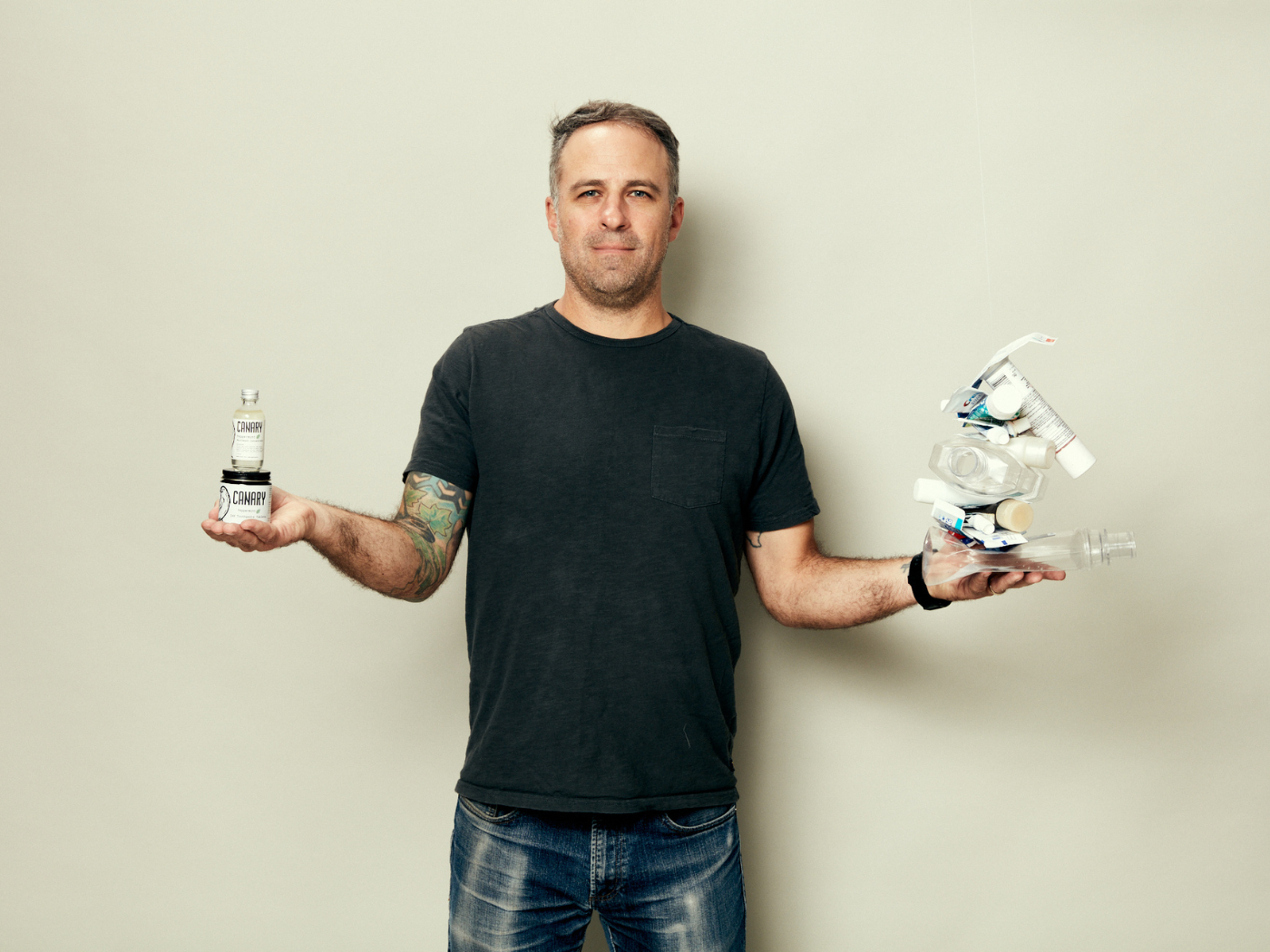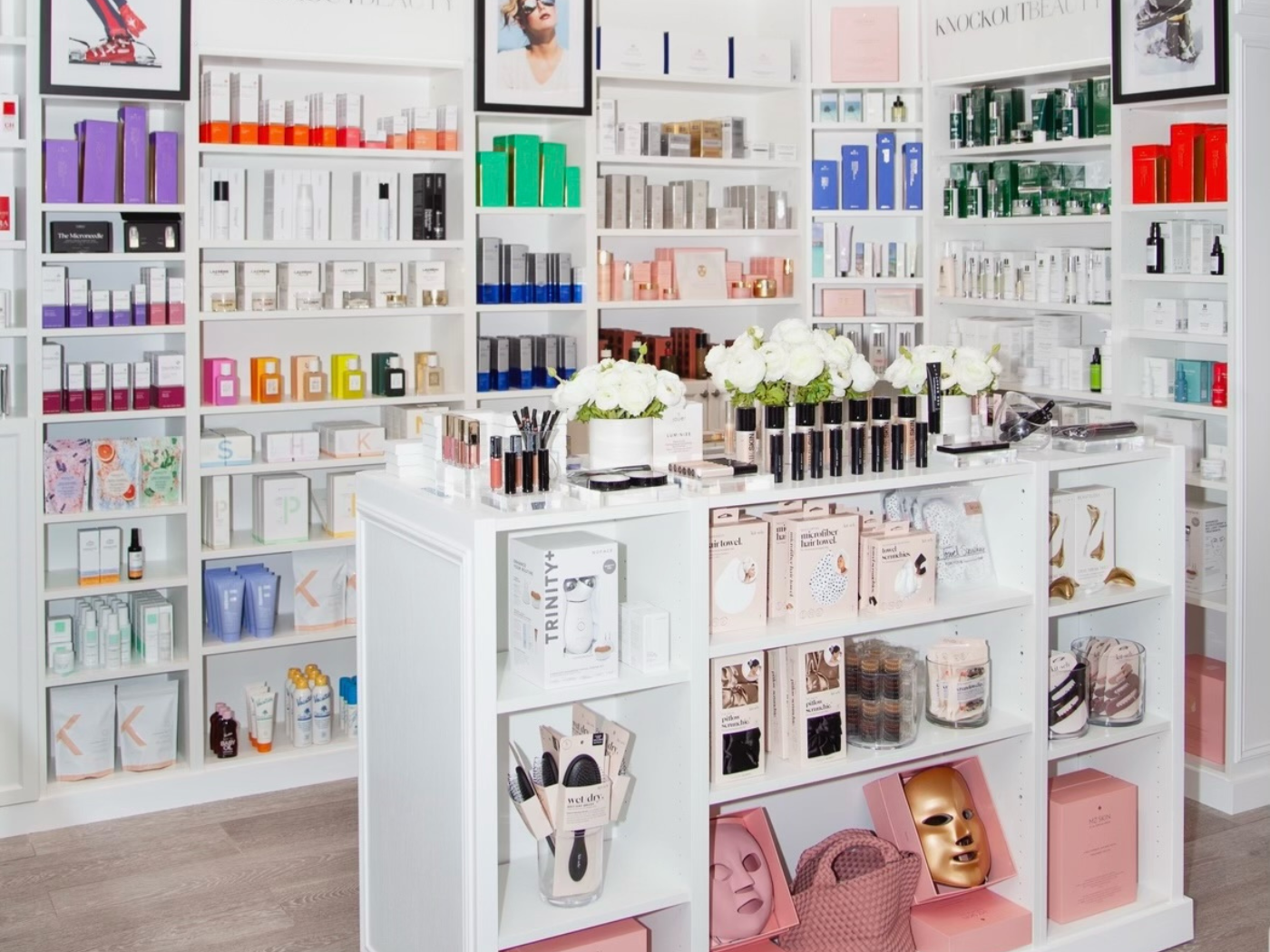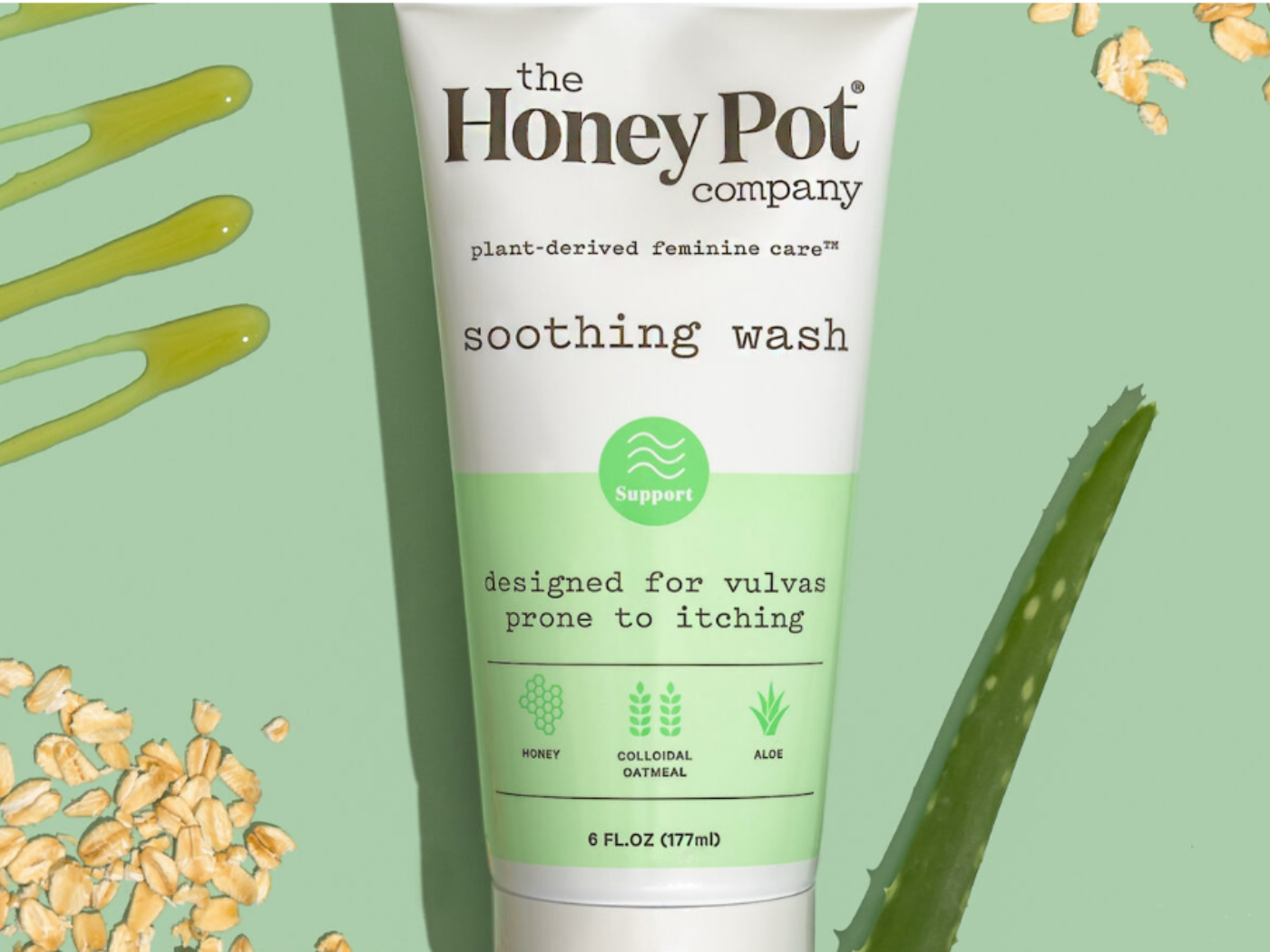By Faye Brookman
The time is now to remove the stigma tied to menopause. And Stacy London, the woman who popularized head-to-toe makeovers on T.V. in the early aughts, is blazing the trail with a first-of-its-kind menopause summit.
“I decided I don’t care what you wear anymore. Look how you want to look. I care more about how you feel,” said Stacy, referring to “What Not to Wear,” the T.V. show she co-hosted from 2003 to 2013, teaching America how to dress well for less.
After feeling isolated and confused when she entered perimenopause at age 47, Stacy, now 53, launched a website dedicated to the topic, State of Menopause, to serve the peri- and menopause community with everything from education to products. And on October 18, World Menopause Day, Stacy kicked off the first ever CEO Menopause Summit at Soho Works in Brooklyn.
And it’s about time. The facts surrounding this hormonal change of life for women in their 40s and 50s are eye-opening: One billion women are expected to experience menopause by 2025, yet one in five don’t seek care because they feel dismissed by their doctors. Another one in five women have considered leaving their jobs because of menopause-related concerns; a recent study reveals that seven in 10 women blamed menopause for a breakdown in their marriage.
From a business standpoint, the global market for menopausal products will hit $24.4 billion by 2030, according to data firm Grand View Research forecasts. But the industry faces headwinds. From a dearth of information to a lack of funding to slow-moving legislation (there’s currently a bill in Congress that would support menopause research), menopause has been in the shadows for decades. Its biggest hurdle is women who simply don’t want to speak up about it.
“Menopause is having a hot second in the press,” Stacy told a packed audience of reporters, investors, medical professionals, and entrepreneurs. “This isn’t a fad. It isn’t only about hot flashes, although I’m having one right now,” she quipped, adding that menopause should be a part of the cultural zeitgeist.
The day’s event featured 16 CEOs sharing the stage, fielding questions from journalist and news anchor Tamsen Fadal. Tamsen, who has more than 100,000 followers on TikTok, has created a soon-to-be-released film, “It’s Not Me… It’s Menopause.”
Beauty was well represented on the panel, including Rochelle Weitzner from Pause Well-Aging, Sonsoles Gonzalez from Better Not Younger, and Sally Mueller and Michelle Jacobs of Womaness. Founders from digital menopause relief brands Evernow, Alloy, Wile, and Kindra were also represented.
Not surprisingly, brand founders often take action when issues hit home.
Rochelle, who has held leadership roles at Erno Laszlo and Laura Mercier, planned to create Pause Well-Aging after experiencing her first hot flash. “The beauty industry seems to stop at age 40, and that was not okay with me. If I wanted skin care to help me, I had to create it myself.”
Same for Catherine Balsam Schwaber, founder of Kindra, a science-based line of plant-powered, estrogen-free personal care, who said she was flabbergasted by the lack of information about menopause’s various stages.
“I started my business when I thought I had a serious disease that turned out to be perimenopause,” recalled Catherine.
Elektra Health’s co-founder, Alessandra Henderson, is out to “smash the menopause taboo” with her evidence-based, educational platform that provides access to board-certified medical experts. “It’s like a menopause doula—and we include education and community educational support to provide personalized plans.”
Due to a lack of studies on menopause, and treatment, brand founders have taken to conducting their own research.
Evernow initiated a study of 100,000 people – one of the largest studies in the menopause space to date. Findings spotlight that Black and Hispanic women have far worse and more severe symptoms than other ethnic groups.
“Why this matters is because Black and Hispanic women are 70 percent to 80 percent more likely to have a cardiac event. This is research that can change health care,” said Alicia Jackson, Evernow’s founder.
Telemedicine provider Gennev has created a web-based menopause assessment tool to predict future cardiac and osteoporosis concerns for its menopausal user base.
Women’s health care brand Bonafide has spent millions of dollars on research to support evidence-based drug alternatives. “Women deserve to have their doctors educated about available alternatives,” said Michael Satow, CEO of Bonafide. As a result, there are now 11,000 physicians actively recommending Bona Fide products to patients.
Founders also said they also face ageism and a male-dominated investor community.
“Women over 40 fall out of medical research and marketing briefs which is ironic because that’s really the age when we should be stepping into our power and greatest impact,” said Gwendolyn Floyd from Wile Women, a wellness company designed for women over 40.
Retailers may be the key in advancing women’s access to products, said Womaness founder Michelle Jacobs, whose personal care items are sold online and in GNC, Ulta Beauty, and Target.
“Retailers need to recognize the huge buying power of this generation,” Michelle said.




